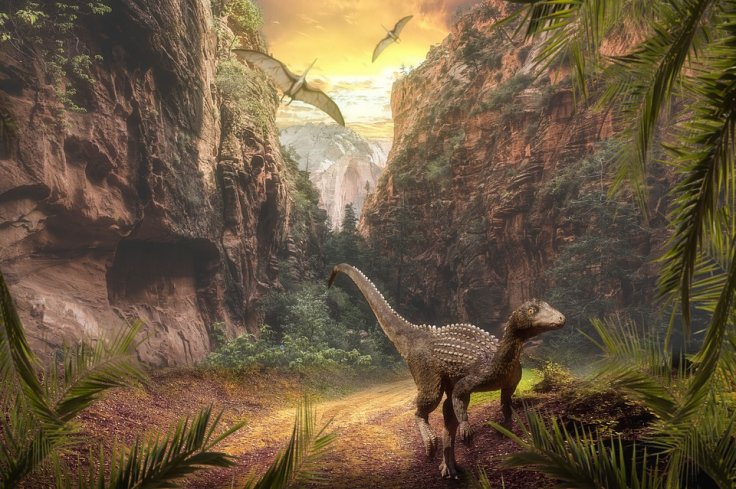
A team of researchers from Canada's Royal Ontario Museum and McMaster University has claimed to have found evidence of malignant bone cancer in a dinosaur for the first time. In their study report, researchers noted that Osteosarcoma, an aggressive bone cancer has been found in lower leg bone, of a Centrosaurus apertus, a plant-eating single horned dinosaur that lived approximately 77 million years ago.
Dinosaurs Battled Cancer Like Humans
The new study report published in the latest edition of Lancet Oncology suggests that dinosaurs had also battled cancers like humans.
"What this study shows, because we found bone cancer at quite an advanced stage, is that dinosaurs were not only afflicted by bone cancer but probably all sorts of other cancers that we see in invertebrates today," said David Evans, a paleontologist at the Royal Ontario Museum and one of the lead researcher involved in the study.
Even though this diagnosis is new, this ancient bone affected with cancer was discovered long back in 1989 from a massive bone bed in Alberta, Canada. In 2017, a team led by Evans, and Mark Crowther, a professor of pathology at McMaster University started studying partially healed bones and started studying this fibula.
Finally, researchers found the bone of Centrosaurus apertus, and concluded that this herbivore giant has battled from cancer before dying in a flood.
"The cancer was able to progress to the stage that it did because of the safety in numbers of the herd that it lived in. We often think of dinosaurs as sort of mythical, powerful creatures, and I think this discovery really underscores that they can be afflicted by diseases that we see around us today, even horrible fatal cancers," added Evans.
Discovery of Unusual Cavities
A few months back, an International team of researchers led by scientists at Tel Aviv University had also found possible evidence of cancer among dinosaurs. After discovering a fossil tail, scientists noted unusual cavities in the vertebrae of dinosaurs.
Hia May, a researcher at the Dan David Center for Human Evolution and Biohistiry Research in Tel Aviv suggested that these cavities are actually evidence of a benign cancerous tumor in the dinosaur's vertebrae.









